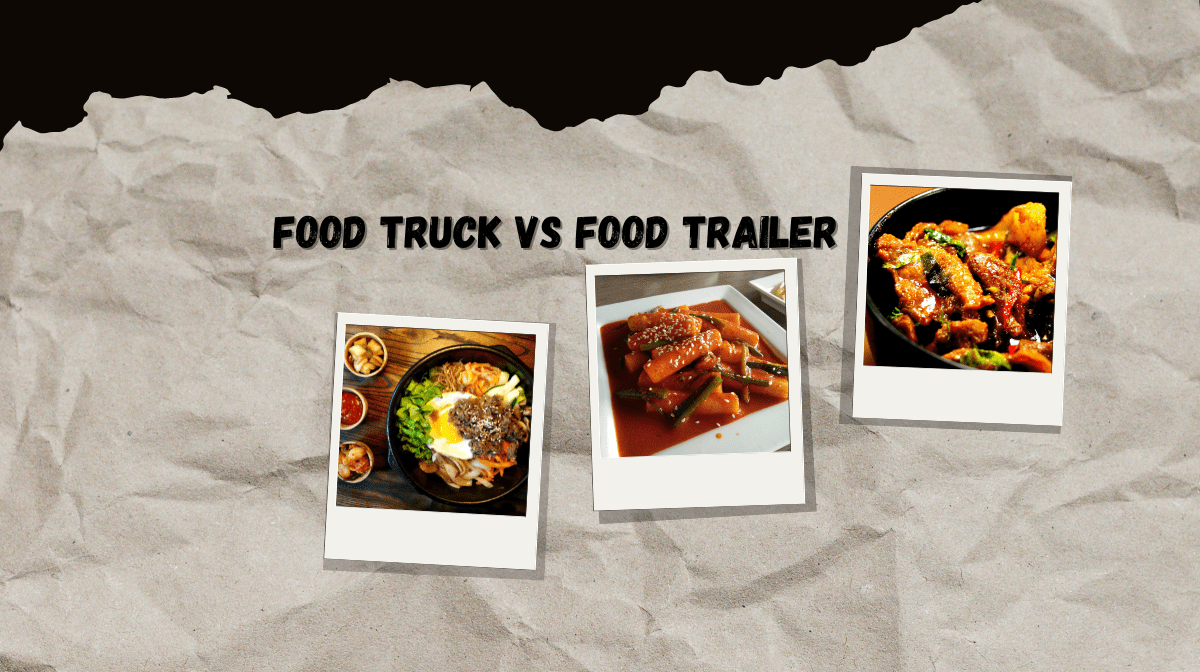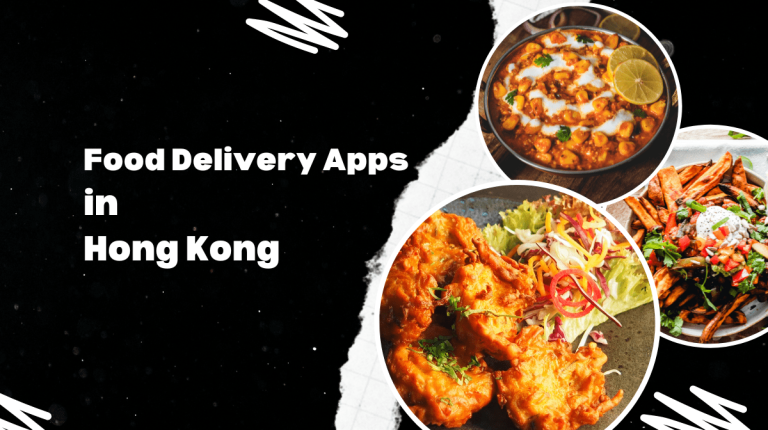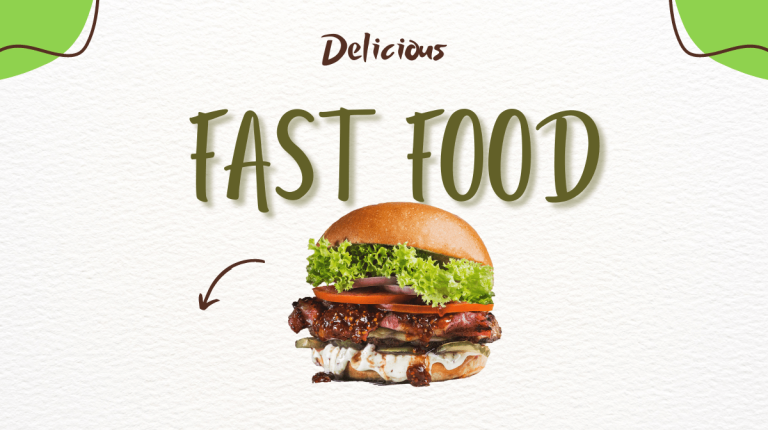Food Truck vs Food Trailer: A Comprehensive Comparison
The food industry is continuously evolving, and one of the most significant trends in recent years is the rise of mobile food businesses. Food trucks and food trailers have become popular choices for culinary entrepreneurs looking to bring their delectable creations directly to hungry customers. Both options offer mobility, flexibility, and the opportunity to explore diverse locations, making them attractive prospects for those seeking to break free from the traditional brick-and-mortar setup.
As the demand for on-the-go food experiences grows, the decision to choose between a food truck and a food trailer becomes a critical factor for aspiring food business owners. Each option comes with its set of advantages and limitations, and it is essential to understand the nuances of both to make an informed choice.
In this comprehensive article, we will delve into the world of mobile food businesses and provide a detailed comparison between food trucks and food trailers. By the end of this guide, you will have a better understanding of the key differences, costs involved, mobility and flexibility, branding opportunities, regulatory requirements, and more, to help you decide which option aligns better with your goals and resources.
What is a Food Truck?
A food truck is a mobile kitchen on wheels, typically housed in a converted van or truck. These vehicles are equipped with the necessary kitchen appliances, such as grills, fryers, refrigerators, and storage space, to prepare and serve food directly to customers. Food trucks are known for their eye-catching designs and vibrant exteriors, often featuring the menu and branding on the exterior walls.
Advantages of a Food Truck:
Mobility: Food trucks offer excellent mobility, allowing entrepreneurs to move from one location to another easily. This flexibility enables them to participate in various events, festivals, and markets, maximizing exposure to potential customers.
Compact Size: Food trucks are compact and can fit into tight spaces, making them suitable for urban areas and crowded events.
Quick Set Up: Food trucks require minimal setup time, allowing entrepreneurs to start serving customers promptly.
Limitations of a Food Truck:
Limited Space: The interior space of a food truck can be restrictive, which may limit the variety of menu offerings.
Parking Restrictions: Some cities and local regulations may impose parking restrictions on food trucks, affecting their ability to operate in certain areas.
Weather Dependence: Inclement weather can impact business operations, as customers may be less likely to visit food trucks during adverse conditions.

What is a Food Trailer?
A food trailer, on the other hand, is a mobile kitchen that is towed by a vehicle, such as a truck or an SUV. Food trailers come in various sizes, ranging from compact models to larger setups with ample cooking and storage space. These trailers are equipped with kitchen appliances similar to those found in food trucks, and they can be customized to match the branding and theme of the business.
Advantages of a Food Trailer:
Customization Options: Food trailers offer more extensive customization options for entrepreneurs to design their ideal mobile kitchen.
Space and Equipment: Food trailers generally have more space and storage capacity, allowing for a more diverse menu.
Stability: Once parked, food trailers tend to be more stable and less affected by wind or weather conditions compared to food trucks.
Limitations of a Food Trailer:
Less Mobility: Food trailers require a towing vehicle, which may limit their mobility compared to food trucks.
Setup Time: Setting up a food trailer may take longer than a food truck due to unhitching and stabilizing.
Parking Space: Similar to food trucks, finding suitable parking spaces may be challenging due to local regulations.
Comparison of Mobility and Flexibility
When it comes to mobility and flexibility, food trucks have the upper hand. Food trucks are self-contained units that can move independently, allowing entrepreneurs to change locations quickly and explore different markets regularly. The ease of driving a food truck also makes it more accessible to maneuver in congested areas and navigate through traffic.
On the other hand, food trailers require a separate towing vehicle, which may limit their mobility compared to food trucks. While food trailers can still move to different locations, the process involves hitching and unhitching the trailer, making it more time-consuming than driving a food truck.
For entrepreneurs seeking to participate in frequent events or explore various neighborhoods, food trucks may be the preferred choice due to their agility and independence.
Cost Considerations and Initial Investment
The cost of starting a mobile food business is a crucial factor that entrepreneurs must carefully consider. The initial investment for a food truck can be substantial, as it involves purchasing a suitable vehicle and outfitting it with kitchen equipment and branding. The cost varies depending on the size of the truck, the quality of appliances, and any additional customizations.
In contrast, food trailers tend to be more budget-friendly when it comes to the initial investment. The cost of a food trailer is typically lower than that of a food truck, as it does not involve buying a vehicle. Entrepreneurs can save on the cost of a dedicated vehicle by using their existing towing vehicle, which can be a truck or an SUV.
However, it is essential to note that both food trucks and food trailers come with ongoing expenses, such as fuel, maintenance, permits, and insurance. Entrepreneurs should carefully budget for these costs when planning their mobile food business venture.
Space and Equipment Capacity
The available space and equipment capacity are significant factors that can influence the menu offerings and overall operations of a mobile food business.
Food trucks have limited interior space, which may impact the variety and complexity of the menu. Entrepreneurs must carefully choose their menu items based on the available kitchen space and storage capacity. Simple and streamlined menus are often more practical for food trucks to ensure efficient operations.
In contrast, food trailers generally offer more extensive interior space and storage capacity. This allows entrepreneurs to have a more diverse menu with additional food preparation stations. Food trailers can accommodate larger kitchen appliances, such as multiple grills, fryers, and ovens, enabling the preparation of a wider range of dishes.
Customization and Branding Opportunities
Both food trucks and food trailers provide entrepreneurs with opportunities for branding and customization. The exteriors of these mobile setups serve as a canvas for entrepreneurs to showcase their brand identity and create visually appealing designs.
Food trucks are known for their eye-catching exteriors, often featuring bold colors, unique graphics, and the menu displayed prominently. The vibrant and attention-grabbing appearance of food trucks helps attract customers and generate curiosity.
Food trailers offer even more extensive customization options. With a larger canvas to work with, entrepreneurs can create more elaborate and eye-catching designs that align with their brand image. Additionally, food trailers may have fold-out walls or awnings that allow for creative presentation and additional branding opportunities.
Permits, Regulations, and Licenses
Operating a mobile food business requires complying with various permits, regulations, and licenses mandated by local authorities. Both food trucks and food trailers must adhere to health and safety guidelines to ensure the safety of food preparation and serving.
The specific permits and licenses required may vary depending on the location and type of food being served. Entrepreneurs must obtain necessary health permits, business licenses, and food handling certifications to operate legally.
Food trucks and food trailers may also be subject to specific regulations regarding parking, operating hours, and zoning restrictions. Entrepreneurs should thoroughly research local regulations and engage with the appropriate government agencies to obtain the necessary permits and ensure compliance with all requirements.
Maintenance and Upkeep
Proper maintenance and upkeep are essential for ensuring the safety and functionality of both food trucks and food trailers.
Food trucks require regular maintenance of the vehicle, engine, and kitchen appliances. The interior of the truck should be cleaned and sanitized regularly to meet health and safety standards. Additionally, entrepreneurs should invest in proper storage and equipment organization to optimize the limited interior space of food trucks.
Food trailers also require routine maintenance to keep the towing vehicle and trailer in good condition. The kitchen appliances and interior of the trailer must be well-maintained and sanitized to ensure safe food preparation.
Entrepreneurs should also be prepared for unexpected maintenance and repair costs that may arise over time. It is essential to have a contingency plan in place to handle any mechanical issues or equipment malfunctions promptly.
Popular Use Cases and Success Stories
The mobile food industry has witnessed a surge in popularity, and both food trucks and food trailers have been instrumental in this trend. Numerous success stories highlight the potential for entrepreneurs to thrive in the mobile food business.
Food trucks have gained popularity for their ability to reach customers in urban areas, at festivals, and at special events. Many food truck entrepreneurs have built a strong following through social media and innovative marketing strategies. Successful food truck businesses have expanded their operations to multiple locations, becoming iconic staples in their communities.
Food trailers have also made a significant impact on the mobile food industry. Their larger size and capacity allow entrepreneurs to offer diverse menus and cater to larger crowds. Some food trailer ventures have achieved great success by targeting specific niche markets or participating in large-scale events.
Learning from the experiences of successful mobile food businesses can provide valuable insights and inspiration for aspiring entrepreneurs.
Conclusion
The choice between a food truck and a food trailer is a crucial decision for entrepreneurs entering the mobile food industry. Each option has its set of advantages and limitations, and it is essential to carefully consider factors such as mobility, initial investment, space and equipment capacity, customization opportunities, permits and regulations, and maintenance.
Food trucks offer greater mobility and agility, making them suitable for entrepreneurs looking to frequent various locations and events. On the other hand, food trailers provide more space and equipment capacity, allowing for a more diverse menu and creative branding opportunities.
Entrepreneurs should evaluate their goals, resources, and the specific demands of their target market before making a decision. By conducting thorough research, seeking advice from industry experts, and learning from successful mobile food businesses, entrepreneurs can make an informed choice that aligns with their vision and aspirations.
Whichever option they choose, the world of mobile food businesses promises exciting opportunities and the chance to delight customers with unique culinary creations on the go.







